Yet I have, and now I wonder why I excluded such a possibility in the first place.
That Vampire Therapist can teach me concepts usually associated with stuffier education shouldn’t really be surprising, then.
What’s surprising is no one has tried this approach for this topic before.
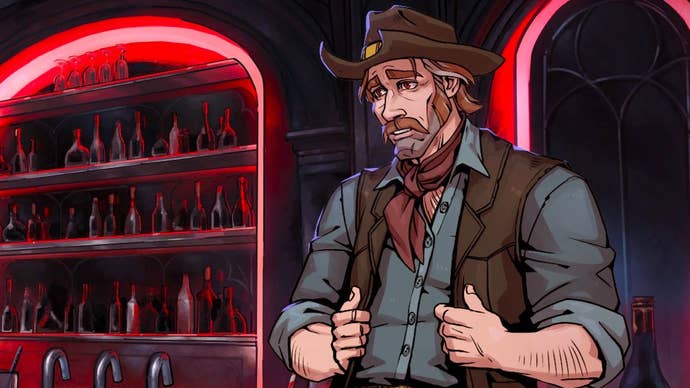
I’ve experienced a bit of this in my real life.
From what I understand, it’s a way of altering thought patterns to identify unhelpful ways of thinking.
It also offers skills to help cope with problematic situations.
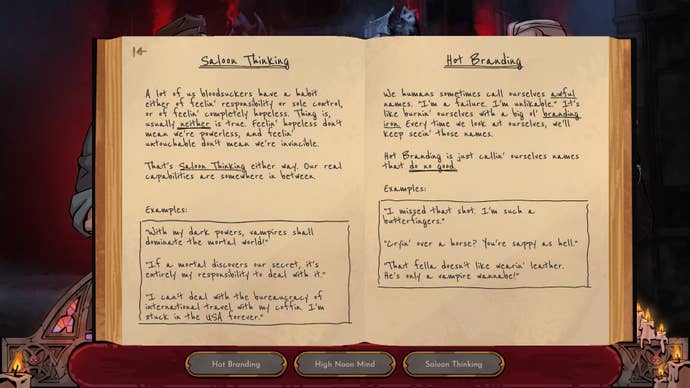
It’s a visual novel kind of affair, a conversational kind of game.
Gameplay almost always revolves around two talking-head characters chatting (with voice acting).
Most of the time though, it’s conversations.
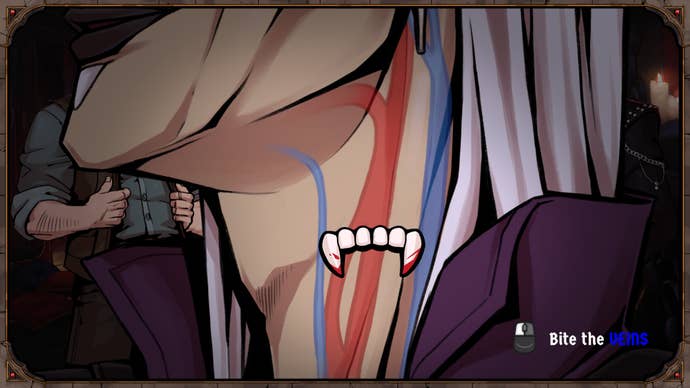
Exactly - it’s here the game gets therapy-ish, but it never swamps you.
Cognitive distortions are ways of talking that aren’t helpful.
Already, at the beginning of the game, Sam has worked out a few for himself.
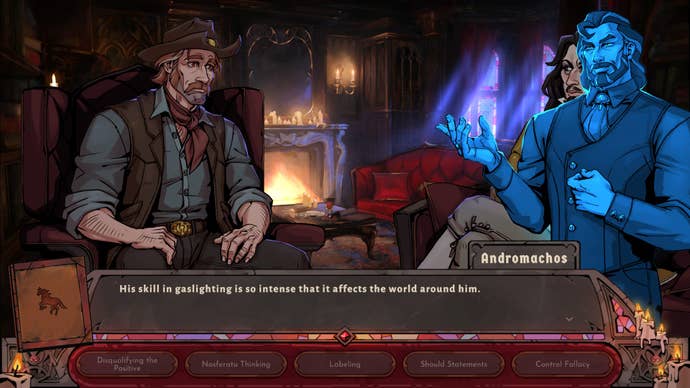
He’s given them his own names: Hot Branding, High Noon Mind, and Saloon Thinking.
Hot Branding is where people call themselves names - Sam likens this to branding oneself with a hot iron.
High Noon Mind refers to someone talking in all-or-nothing extremes, as if a situation were do or die.
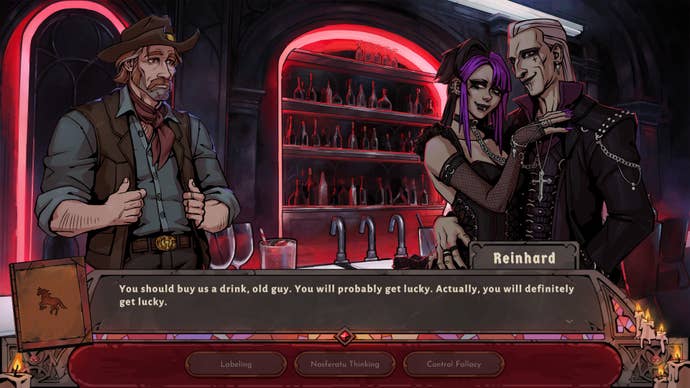
As I said, you’re eased into this gently.
A lot of effort has been made to make the information approachable.
But the impression I get from the game in this regard is a responsible one.
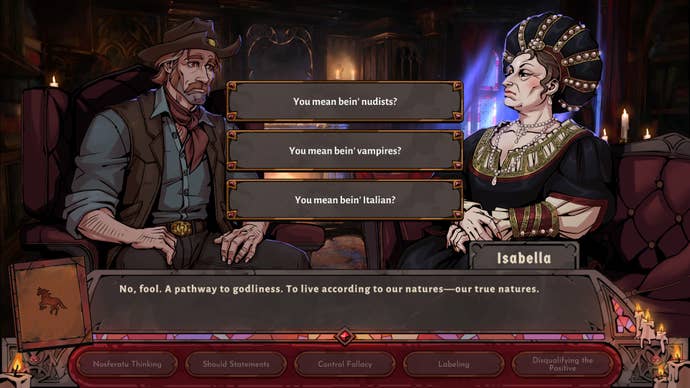
It seems more concerned with heightening understanding about cognitive behavioural therapy rather than in any way replacing it.
It also never loses sight of the fact that it is a game - that it is entertainment.
Partly, that’s why it’s so easily absorbed.
Gradually it sinks in - and I mean really sinks in.
I’m taking on board advice and lessons I learnt in the game.
I’m watching for “shoulds” in my sentences and all-or-nothing declarations I make.
I’m looking for ways I’ve pressurised situations needlessly, and how I might relieve that.
I’m being a bit kinder to myself, and it’s nice.
And it’s remarkable how quickly and subtly a game can have that effect.
A copy of Vampire Therapists was provided by Little Bat Games.